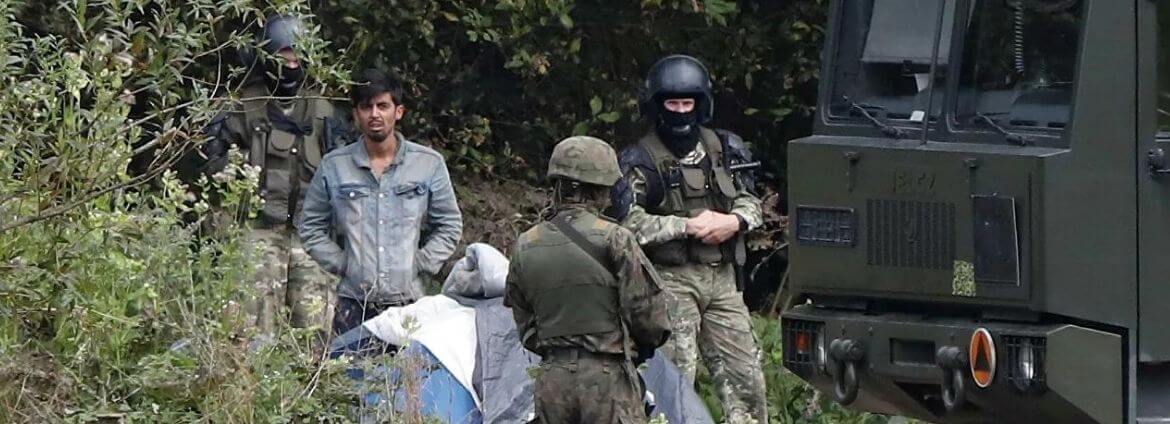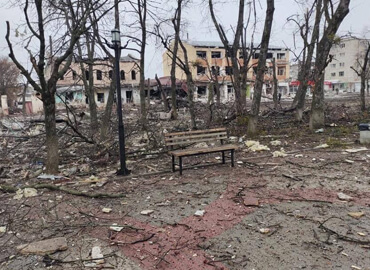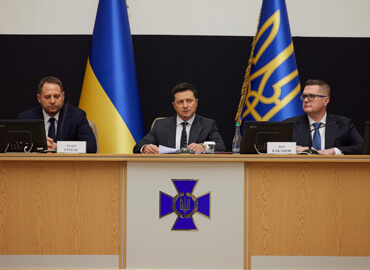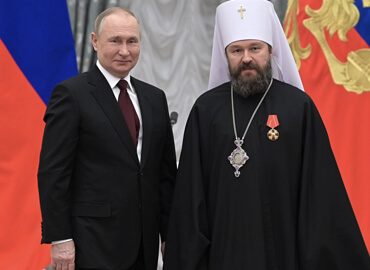Lukashenko’s regime is bringing hundreds of migrants from Iraq, Afghanistan, and other countries to the borders of the European Union. In 2015, Russia used this form of hybrid aggression against the Nordic countries, specifically Norway and Finland. It is difficult to imagine that Lukashenko is consciously aggravating the situation by raising the stakes in relations with the West as high as possible without Moscow’s approval. His only strategy now is to bargain for support from the Kremlin in exchange for Belarus’s sovereignty.
The migration crisis created by the Lukashenko regime is becoming another instrument in Russia’s hybrid war against Western democracies. The destabilization of the eastern borders and the creation of tensions within and between member states are in line with the Russian strategy aimed at weakening the EU and NATO.
The traffic of illegal migrants in Belarus is being organized on a large scale, with special flights, guarantees, and assistance from border guards.
The regime is clearly pleased with demonstrating new possibilities for hybrid attacks and its readiness to provoke armed conflict on the border at any time.
Belarusian security forces do not interfere, but on the contrary create conditions for illegal migrants to freely cross the border. Migrants are taken to the border in vehicles that look like Belarusian border guard cars and people with shields and in special uniforms push migrants away from Belarus towards Lithuania.
Essentially, the Lukashenko regime is using criminal schemes as an instrument of political blackmail. This makes Belarus a criminal state, and the security forces and the state apparatus accomplices.
For Lithuania, Latvia, and Poland, the blackmail with migrants has become a real test. They declared a state of emergency due to the growing flow of migrants and have begun building barbed wire fences on the border with Belarus.
Polish Defense Minister Mariusz Blaszczak directly accused Minsk and Moscow: «The problem on the Polish-Belarusian border is a dirty game between Lukashenko and the Kremlin.» Polish Deputy Foreign Minister Marcin Przydacz called the migration crisis a «political operation» of Lukashenko. Vilnius said that Belarus wants to use illegal migrants as hostages.
However, the attempts of the Baltic states and Poland to protect themselves from the wave of migration from Belarus have become a pretext for new propaganda attacks.
The Kremlin supports Lukashenko with media through statements by officials and through media through media broadcast by a wide network of channels of influence in European countries.
Minsk and Moscow simultaneously accuse the West of provoking crisis situations at the Belarusian borders, inhumane attitude towards migrants, and an unwillingness to solve their own internal migration problems.
They also seek to split the EU’s common position on the Belarusian regime, accusing Poland and Lithuania of seeking additional funding from the EU.
In rearticulating the Kremlin’s position Russia Today writes that «in creating media noise around migration problems and blaming Russia and Belarus for the crisis, Warsaw is seeking additional funding and other preferences from the EU.»
Kremlin propaganda is trying to shift responsibility for the influx of illegal migrants triggered by Moscow and Minsk onto the EU.
Russian and Belarusian media are promoting the idea of the need to establish dialogue between Brussels and Minsk, referring to the supposedly flawed policy of the EU towards Belarus.
From Russia Today: «Experts believe that the current situation is a consequence of the ill-considered policy of Lithuania and the EU towards the country on the whole. Therefore, they believe Brussels now needs to either establish dialogue with Minsk or close its borders.»
A common thread of information campaigns is the idea that the EU supposedly refuses to hold negotiations proposed by Belarus aimed at resolving the migration crisis. A statement accusing the European Union by Belarusian Foreign Minister Makei was reproduced by Sputnik.by, Belta.by, Kommersant, TASS, and other Belarusian and Russian media.
The Russian Foreign Ministry, in turn, feigns surprise: «To be honest, we were very much surprised that Minsk is accused of deliberately creating and encouraging illegal migration to EU countries from the Middle East and North Africa,» said the MFA’s Commissioner for Human Rights Issues Grigory Lukyantsev.
Another trick that the Kremlin and Lukashenko’s propaganda often resorts to is accusing the West of a policy of «double standards.» Attempts to accuse Lithuania of inhumane treatment of refugees also continue.
It is not far from here to accusations of Nazism. Lukashenko has already called Lithuania a country of Nazis and ordered again to close «every meter» of the Belarusian border. Kremlin media also widely disseminated a statement made by the Secretary of the Security Council of Belarus Alexander Volfovich, for example, under these kinds of headings: «Only fascists acted like this: in Minsk, Lithuania is condemned against the background of a migrant emergency.»
The crisis in Afghanistan has only exacerbated the problem of the weaponizing of migrants. Now Lukashenko can direct the flows of refugees from Afghanistan under the guise of helping the Afghan people, because there is no one like Russia and Belarus to «consider how to improve the Afghans’ situation.»
«You see how many Afghans have now gone through Belarus to Poland and Lithuania. The Poles have already proposed declaring a state of emergency in the border areas. Who cares, let them declare it. They got what they wanted,» he told reporters.
Continual tension on the border can have another possible consequence – the occurrence of an unintended incident that could result in an accidental or planned armed escalation. The Zapad 2021 joint military exercises of Belarus and Russia that start this month will create additional threats for Belarus’s neighbors.
Considering the situation in Afghanistan, another direction of hybrid attacks on the European Union from the Lukashenko regime may be an increase in drug trafficking through Belarus to Europe. The creation of one more point of tension between the EU and Belarus is beneficial primarily to the Kremlin. In this way, Moscow further increases Lukashenko’s dependence on its support and gains additional leverage over the EU.
Материал доступен на русском языке: Мигранты как оружие. Лукашенко криминализирует Беларусь











